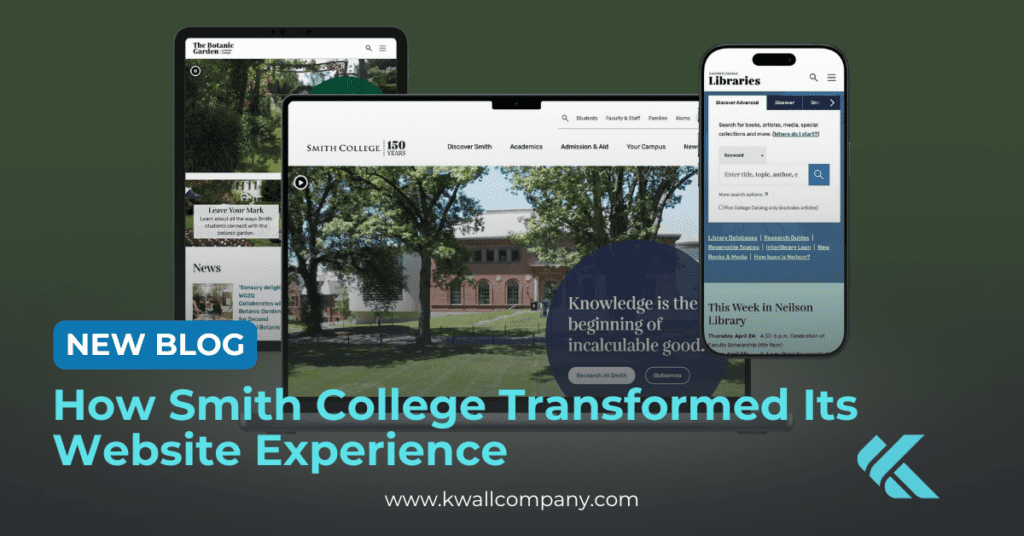
In today’s digital-first landscape, a college or university’s website is more than a communications tool—it’s a strategic asset. It influences how prospective students perceive your institution, how faculty and staff work, and how alumni stay connected. Understanding this, Smith College partnered with Four Kitchens to undertake a comprehensive digital transformation. The goal: build a centralized, accessible, and scalable web experience that reflects the institution’s mission and supports its future growth.
The Challenge: Outdated Infrastructure and Disconnected Digital Experiences
Over time, Smith College’s online presence had grown increasingly complex. Built on Drupal 7 and expanded to over 30,000 pages, the existing site was difficult to maintain and fell short of modern usability expectations. Key digital properties—including the Smith College Libraries and the Botanic Garden—existed on separate systems, resulting in disjointed branding and user experience.
Beyond structural concerns, the site faced several critical issues:
- Poor accessibility compliance
- Limited mobile responsiveness
- Inefficient content workflows requiring HTML knowledge
- Inconsistent design and navigation patterns across pages
To meet the evolving needs of students, faculty, and staff, Smith needed more than a redesign—it needed a strategic overhaul.
The The Solution: A Unified, Accessible, and Future-Ready Platform Framework for Smart Virality
Four Kitchens led a collaborative effort to reimagine Smith College’s digital ecosystem. The solution was grounded in higher education best practices and designed to support long-term sustainability:
- Unified three major web properties into a single Drupal-based platform to streamline management and improve consistency
- Migrated more than 30,000 pages, with over 90% completed through automated tools to reduce risk and resource strain
- Implemented a reusable, component-based design system using Emulsify for branded storytelling and flexible content layouts
- Introduced real-time content previews, making it easier for editors to publish with confidence
- Baked in accessibility and performance standards, ensuring the site met WCAG guidelines and delivered a smooth user experience across devices
The Results: Improved Usability, Performance, and Engagement
The results of the redesign were transformative:
- 99% reduction in accessibility violations, with a perfect Lighthouse accessibility score
- Lighthouse performance score of 95, delivering a faster, more reliable user experience
- Higher engagement and retention, with users staying on the site longer and interacting more deeply with content
- Empowered content teams, now equipped with intuitive tools that reduce the reliance on technical support
As Randy Oest, Creative Director at Four Kitchens, shared:
“This wasn’t just a redesign. It was a reintroduction of Smith College to its digital community.”
A Model for Higher Education Digital Strategy
Smith College’s website transformation serves as a benchmark for how institutions can take a strategic, user-first approach to digital modernization. By investing in accessibility, design consistency, and scalable technology, the college created a more inclusive and impactful online experience for all its audiences.
Inspired by Smith College’s Digital Transformation?
Smith College’s website overhaul shows what’s possible when strategy, accessibility, and performance come together. If your institution is ready to solve similar challenges—whether through a redesign, a Drupal migration, or improved engagement tools—KWALL can help.
Contact our team to discover how we can elevate your higher ed website and create a more unified digital experience.



